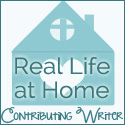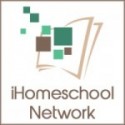Charlotte Mason has become quite popular lately, but those who are Charlotte Mason inspired versus those who try to follow her methods and curriculum guides closely still vary widely.
In past years I would say we were more Charlotte Mason inspired, largely because I was starting a bit more formal lessons earlier on, and I understood a bit less about Ms. Mason’s methods than I do now.
Now that we are formally starting 1st grade (we start in October, not September), we are officially in Charlotte Mason formal territory, and I’ve chosen for this year to be as close to Charlotte Mason’s principles as I can, while still maintaining our Islamic beliefs and restrictions.

So, why are we going (mostly) all-in? And why might you want to give it a try also?
The method
First and foremost, Ms. Mason’s writings jive with me in a big way. I feel like there was epiphany after epiphany when reading Home Education. From the idea that we start good habits even from infancy, to how to use our outdoor time, and even the methods outlined to help kids hone their habit of attention, it all seemed to common sense and generally doable.
How Ms. Mason paints a picture for homeschooling preschool is far more in line with how I believe it should be at this point: lots of time outdoors and focused on play.
There was very little that I didn’t enjoy as she described her methodology and reasoning, so why not emulate as much as we can and see if we get the fruits of our labor that she describes?
The variety
Can you believe we have upwards of 15 subjects we cover each week? The beauty is that we don’t cover each subject each day, or even multiple times a week. Some subjects, like artist study, are only covered once a week, and other subjects, like poetry, are covered every day but only for 5 minutes a day.
Between the short lessons and without the need to do everything every day, it opens up the opportunity to have a wide variety (or feast, as it’s called in CM circles) throughout our homeschool. My kids get art instruction, nature study, reading lessons, geography, history, poetry, literature, math, singing, drawing, handicrafts, and more.
What we end up with is a gentle approach to each subject, but at the end of the day my kids are given a well rounded curriculum, in sha Allah.
Focus on the arts
I’m a math girl. I would do trigonometry for fun if given the chance (and a refresher course at this point). In school I hated poetry, literature, art, and other subjects that didn’t have a clear right and wrong answer. As such, it’s easy for me to push the arts to the side and keep telling myself I’ll just do it later.
With following the Charlotte Mason approach closely, I’m reminded of the importance of the arts in a well rounded education. While I do skip over composer studies (I’ve thought of choosing a famous Qari, but maybe in a coming year. We’ll see, in sha Allah.), I have picked out artists that largely do landscape or still life portraits, and we read classic literature and poetry.
Even though these areas are not my strong suit, I do not want my weakness to become a weakness for my children by default. So, exposure is the key right now.
Less tests
One thing I’ve learned from homeschooling through high school is how detrimental testing can be in the long run. While exams are not completely missing from a Charlotte Mason education, it is not a guidepost like it is in other methods or curriculums. Rather, children focus on narrating what they’ve read, either orally or in written form.
Instead of focusing on if kids know a pre-sorted set of facts that someone else determined, we ask them to tell back what they remember. Essentially, it is note taking practice for college, and puts the focus on what they do know rather than what they don’t know.
All in?
What I’ve read over and over is parents saying the closer they got to Ms. Mason’s exact advice, the more peaceful and easy their homeschooling experience was. Taking bits and pieces and mixing with other methods may not get the results that Charlotte Mason mentioned throughout her works.
With that said, there are some things as a Muslim that we won’t be doing.
As I said earlier, we won’t be doing any composer study. Right now we are just skipping it and not replacing it with something else.
Obviously Bible lessons will be adjusted, so we do a portion of Qur’an memorization, then we do a subject from Ad-Duha each day, plus one day of stories of the Prophets. We are also only doing a folk song in Arabic and English, but we are not doing a hymn of sorts. I may change my mind on that and find nasheeds, but I struggle with the idea that singing is a form of worship in Christianity, and I don’t want that idea to be implanted into my own children. Instead, we spend that time memorizing Qur’an.
Jumping in with both feet may not be for everyone, but I’m excited to see how this goes with my somewhat reluctant learner. So far, the short lessons, and changing from one very different subject to another has been great. Also the wide variety of the arts has been a beautiful addition to our day that we both look forward to.
In sha Allah I’ll be updating mostly through Instagram, so follow me there to see more of our day to day workings.





[…] It’s that time of year for unveiling our curriculum! Starting last year I decided to do things a bit differently in that I am revealing the curriculum we used last year. I’ve been doing the curriculum posts long enough that I’ve seen the major differences between the plan and reality. So rather than unveiling the plan, I’ll break down what curriculum we actually used in our Charlotte Mason homeschool. We have just wrapped up Grade 1 (Form 1B) after our first year being all-in with Charlotte Mason. […]